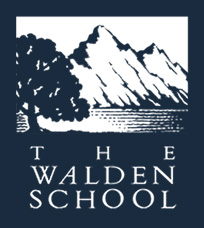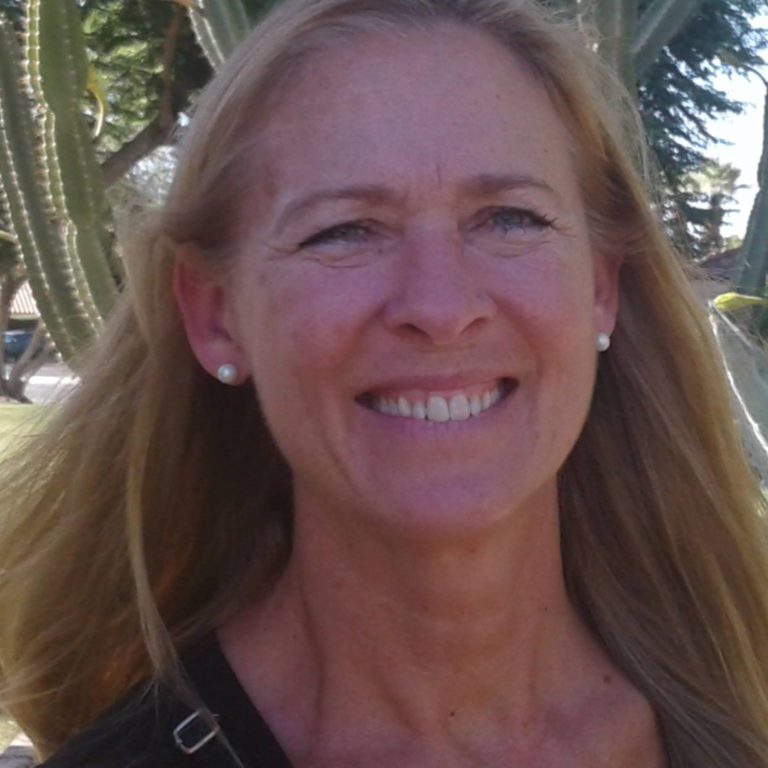In the Spotlight
Dede Ondishko
How and when did your relationship with Walden begin?
I was a piano student at Peabody Conservatory Preparatory Department. Peabody required all private students to take music theory, but somehow I was enrolled in both theory and musicianship. I really loved musicianship. Cindy Brackbill was my teacher, and she told me about Walden. My parents got really excited about it, because I was something of a wayward child, so they hoped it would reform me. And it did. In fact, it transformed me. I was a C-student before Walden. I didn’t care about school or improving myself. But then I went to Walden, and I’ve been an A-student and an overachiever ever since! It was like I found the “on” button. I became an engaged person because of my first year experience at Walden.
What has been your involvement with Walden since then?
Today some of my best friends are kids and colleagues I went to camp with. I began as a student in 1974 at age 14 and was a student for four summers. I was on staff for one summer. I was on faculty for seven summers, and I also served a term on the Board of Directors 1998-2004. When I was on faculty, my stepdaughter, Danielle, was 12 and came for the shorter program, and she was hooked! She went every year that she could, then she served on faculty, and now she has joined the Board. As a music teacher I’ve sent my students to Walden. I’m also a contributor, and I’ve held concerts to raise scholarship money for YMP students. I was only able to go to Walden on scholarship, so I really want to thank and repay the people who gave to scholarships and basically paid for me to attend Walden. Walden is family. Like Lynn Hebden said, “You take Walden with you wherever you go.” You never really leave.
Could you describe a favorite Walden memory?
A few years ago, I was interviewed as part of a Teacher of the Year award, and they asked about my favorite teacher, and my answer was David Hogan (we called him Hoagie). I was in my early fifties, but I started choking up right there in the interview, describing how much he gave me as a student. He showed me what I could do! He gave me opportunities no one had ever given me. He was the first teacher who saw what I could do, stood by my side and waited for me. He lit a fire in me!
Another example of that was Saturday hiking at Walden. I was a bit of a laggard, so I was in the last group, which basically went at Sunday-stroll pace-no one really even expected us to make it to the top! I was having fun, but I went to Jeff Hebden, who was on staff as activities director, and I asked if I could move to Group I, the group that was practically running up the mountain. He looked it at me the same way Hoagie looked at me and said, “You want to do it? Okay, go for it!” That Saturday, I hiked in Group I, and I was the first one to the top. This is something I didn’t know I could do, but they believed in me.
I also loved listening to music in a new way. After Goodnight Music, a group of us would go to the listening library, turn off the lights, lie on the floor, and put our heads together like we were spokes of a wheel, and just listen. It was amazing to have this music listening hour with just us kids. We wanted to share the music we liked, and we were expanding each other’s ears. That music sunk in on a level that transformed me, on a cellular level. Having that musical communing with kids my own age was transformative. That’s when I heard Arnold Schoenberg’s Verklärte Nacht for the first time. I think I’ve spent my whole life trying to rewrite and recapture that piece!
How are music and creativity part of your life now?
I went to Eastman for graduate school, and I majored in Music Composition, specializing in Computer Music. After I graduated, I ended up going into computer network engineering, which I was able to do because of my computer music training. But sadly, I stopped playing or writing music! Kyle Horch, a saxophone performer in London who commissioned a series of pieces from me, single-handedly kept me writing. Later, after 12 years of working in computer networking, I realized there wasn’t enough music in my life, so I applied for a job as a public school music teacher, even though it meant going back to school to get licensed. At age 39, I went into teaching music full time, until my husband and I decided to retire. Now I perform all the time as concert pianist and accompanist, as a symphony violist, and I sing in a vocal jazz group. I’m very active as a musician. I recently started writing symphonies-I just finished my third. And I hope to get them performed. I love creating music. Kurt Vonnegut said, “Practicing an art, no matter how well or badly, is a way to make your soul grow,” and I keep that quote above my workstation.
What is a non-musical hobby you love?
Music is intangible, you can’t touch it or hold onto or see what you’ve accomplished so to counter that I’ve picked up some great concrete hobbies. I make paper cards and send notes to my family and friends. I sew. I garden. I play tennis and go biking and do lots of hiking. I just love hiking.
What advice would you give to an earlier-career musician as they are setting out along their path?
If you have the chance to take a music marketing or business class, do not miss out! Learn about promotion, marketing and production, learn how to send out scores and cover letters to perfect strangers. Pay attention, get informed, and reach out for guidance.
You have to feed your artistic spirit. As Vonnegut says, you’ve got to keep creating! Be careful of the gap of what you are doing and what you can imagine, or what you hear other people are doing. We’re at a time when the best artists in the world are so easily accessible, so we can see world class musicians at any time. That can be discouraging! So I’ve learned to say to myself, “I know I’m not there yet, but I have the potential.” I know that because my Walden teachers believed and told me so. As Ira Glass says, “Don’t let the gap get you down!” Even though that gap is always there, you can strive and be happy with those moments when the gap shrinks a little bit. You’ve just got to go for it!
About: Denise Ondishko, Ph.D., is a composer, performer, and educator. Her works cover a wide, eclectic range of genres, including solo piano, solo violin, wind ensemble, orchestra, saxophone and piano, chamber ballet, children’s theatre, elementary school band, and a number of works for live instrument and computer-synthesized tape. Dede won the Northern California Viola Society’s 2018-2019 Composer Competition for her piece, Out of Mud.
Dede is active as a performer and collaborator. She studied at Carnegie Mellon University and the Eastman School of Music. Her teachers included Joseph Schwantner, Warren Benson, Barbara Kolb, David Hogan, and Leonardo Balada. She has done extensive research into the work of computer music pioneer Paul Lansky, a member of Walden’s Advisory Council. She has taught composition at The Walden School and Oberlin Conservatory. In addition to her compositional work and research she has also developed a parallel career as an information technology management specialist.

